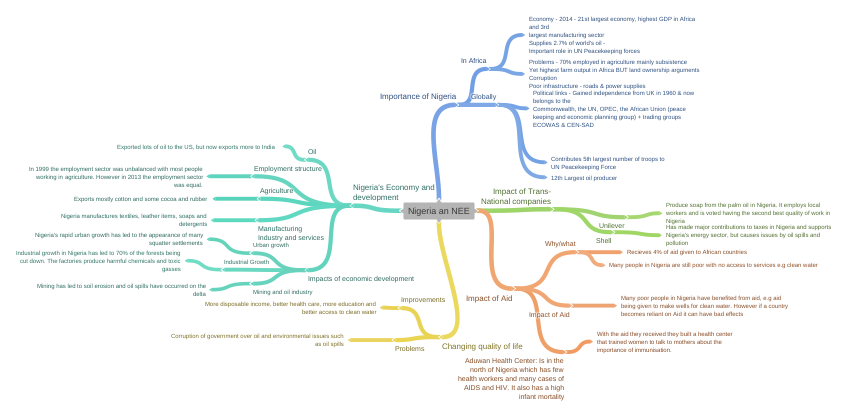Introduction
Nigeria, a diverse economy, relies heavily on three major sectors for its GDP contribution: agriculture, oil and gas, and services. In this article, we will explore these sectors, their current contributions to the Nigerian economy, and potential strategies for growth and diversification.

Agriculture: Nigeria’s Largest Sector
Agriculture stands as Nigeria’s largest sector, constituting approximately 25% of its GDP. This sector is predominantly focused on crop production, accounting for roughly 80% of its output. Other significant agricultural activities include livestock, forestry, and fishing.
Strategies for Agricultural Growth
- Enhancing Access to Resources: One vital step is increasing access to land and credit for smallholder farmers. These efforts can significantly boost agricultural productivity.
- Improving Infrastructure: Investment in agricultural infrastructure, such as road networks, irrigation systems, and storage facilities, is essential for farmers to maximize their yields and reach wider markets.
- Research and Development: Supporting agricultural research and development can lead to innovative technologies that enhance productivity and crop yields.
- Empowering Women in Agriculture: Providing women with better access to resources, training, and market opportunities can contribute to agricultural growth and gender equality.
Oil and Gas: A Significant Contributor
The oil and gas sector is Nigeria’s second-largest contributor to GDP, accounting for approximately 13%. This sector is mainly driven by crude oil production, which constitutes around 90% of its output. Additionally, natural gas production and refining are essential activities within this sector.
Diversification and Sustainable Practices
- Investing in Renewable Energy: Nigeria, despite being a major oil producer, imports a significant amount of fuel. By investing in renewable energy sources like solar and wind power, Nigeria can reduce its reliance on oil.
- Developing the Gas Market: Nigeria possesses substantial natural gas reserves, yet the gas market remains underdeveloped. Investment in gas infrastructure and regulatory reforms can unlock its potential.
- Transparency and Accountability: Addressing corruption and mismanagement in the oil and gas sector is crucial. Implementing reforms that improve transparency and accountability can restore confidence and attract investments.

Services: The Thriving Sector
Services represent the third-largest sector, contributing roughly 52% to Nigeria’s GDP. This sector encompasses various activities, including trade, transportation, communication, financial services, and tourism.
Driving Growth in the Services Sector
- Investing in Education and Training: A skilled workforce is vital for the services sector. Government investment in education and training, along with scholarships and grants, can ensure a competitive workforce.
- Infrastructure Development: High-quality infrastructure, including roads, bridges, and airports, is essential for efficient service delivery. Investment in infrastructure can drive growth in this sector.
- Promoting Innovation: Fostering innovation through research and development initiatives and tax incentives can help the services sector adapt and thrive.
- Attracting Foreign Investment: Creating a favorable regulatory environment for foreign businesses and providing incentives can attract foreign investments, bringing capital, technology, and expertise to the services sector.

Conclusion
In conclusion, Nigeria’s economic diversification efforts are crucial for long-term growth and resilience. Strategies outlined in agriculture, oil and gas, and services sectors, along with broader measures like reducing regulatory burdens and enhancing transparency, can drive economic growth and improve the overall well-being of Nigeria’s population. With effective governance and private sector collaboration, Nigeria has the potential to unlock sustainable economic growth across its diverse sectors.

















